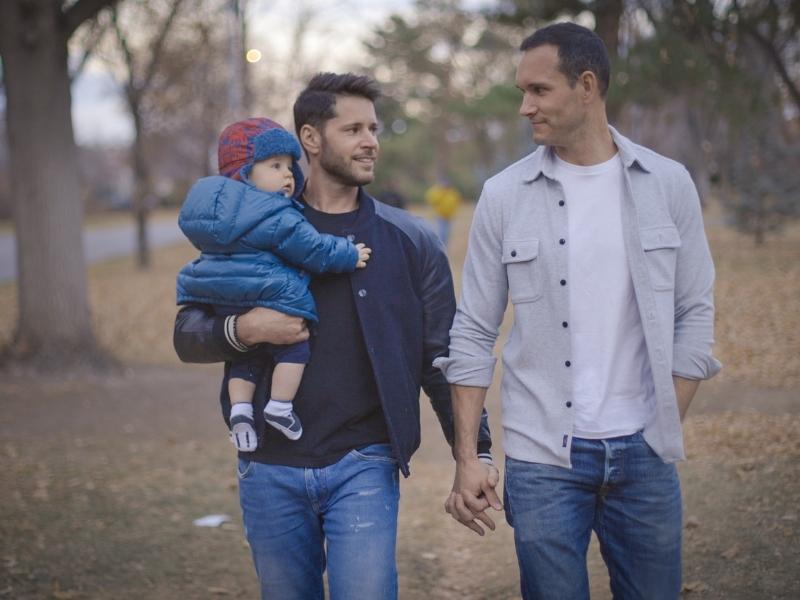For many hopeful patients, having a family requires IVF, the help of an egg donor, a gestational carrier, and a lot of love and patience. In this second installment of the podcast “It Takes a Village: Our Path to Leo,” Brian and Ty talk about their relocation to Denver, their initial visit to Conceptions, and early conversations with Dr. Greene. Now that we know how Brian and Ty met, fell in love, and began their journey together – it’s time to talk baby logistics!
Once Brian and Ty got comfortable in their new surroundings, they immediately decided it was time to begin their family-building journey. In 2016, they had their first visit with Dr. Robert Greene, Reproductive Endocrinologist at Conceptions Reproductive Associates of Colorado. This first conversation revolved around getting to know each other (and seeing if they were comfortable with one another) and setting expectations.
One of the first questions Brian asked Dr. Greene was, “Can we get dinner, and can you tell us how we have a baby?” To which Dr. Greene responded “How many courses are we talking about? It’s going to be a long conversation.” In the field of reproductive endocrinology, they use the term “family planning” very literally. “I always ask my patients ‘What does your future family look like?’ because we want to create a plan that includes the last pregnancy just as much as the first one. When we plan early, we have the greatest impact on potential outcome,” said Dr. Greene.
Brian and Ty were immediately comfortable with Dr. Greene and decided to pursue their fertility journey with him and the team a Conceptions. It’s more than just being comfortable with the center though. It’s just as much more about data and the center’s live birth success rates than it is about the center’s marketing and “wow” factor. “Back when I became an R.E. in 1995, success rates were about 18-20% with each embryo transfer. Today, the national average is around 40%. Conceptions are 70-80% every time we do an embryo transfer, and we try to only transfer one embryo at a time to keep chances of multiples low,” mentioned Dr. Greene. “We now deal with tremendous sorrow when we’re not successful rather than elation when we were back in 1995.”
Dr. Greene went on to explain that a fertility center is, in many ways, like a 5-star restaurant. The reputation gets in you the door, first impressions are doled out by your maître d and waiter, but the main reason you’re there in the first place is because of the chef and what’s going on in the kitchen. “Our chef and kitchen are the embryologists in the embryology lab. We have some of the best people and technology in the industry in our facility. All options are on the table at Conceptions – insemination, intrauterine insemination (IUI), in vitro fertilization (IVF), frozen embryo storage and transfer, gestational carriers, same-sex options – you name it.”
“For a fertility journey to be a success, first and foremost I feel it’s important to form a bond with each patient or couple. Sure, success rates need to drive the process but that can’t be the only aspect. The bond between the R.E. and the patient/couple is critical so both parties can be heard, understood, cherished, and trusted throughout the fertility journey,” said Dr. Greene.
Stay tuned for episode three where Brian and Ty share their experiences with the donor process and finding a gestational carrier.


